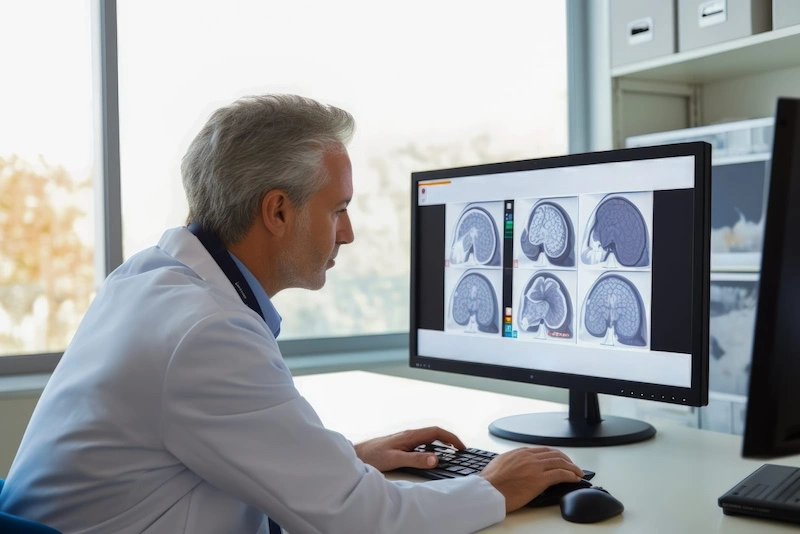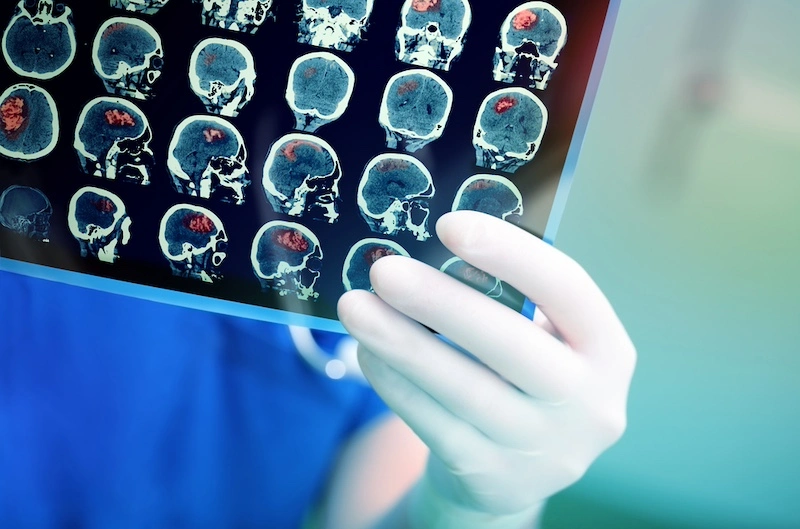Transcranial Magnetic Stimulation (TMS) is a non-invasive procedure that uses stimulation to reach specific areas of the brain that may be causing problems. Research has already focused on the way in which it is used for the treatment of neurological and mental health conditions, but now there’s significant promise with regard to overall well-being and brain health.
Today, TMS & brain health have seen growing prevalence in the field of overall well-being, not just targeted treatment for specific mental health conditions. This article will review how TMS works and its potential benefits for those who are seeking to improve their cognitive function or overall brain wellness.

Therapeutic Potential of TMS
In recent years, the use of TMS brain health therapy has grown to such a degree that you can find several over-the-counter products or instructions on how to use batteries to create your own.
More than that, research has continued to such a degree that the FDA has approved TMS as a treatment for several mental health conditions. This means that clinics are able to offer TMS therapy for significant neurocognitive conditions or mental health conditions. Now, it has grown in popularity enough to the point that people are relying on TMS to improve their overall cognitive functions like memory and attention.
Findings support that TMS can have a significant improvement on brain health, particularly for those who need quick stimulation and better cognitive focus or function after things like heavy studying or in anticipation of large workloads.
Today, clinical applications of transcranial magnetic stimulation offer more reliable ways to improve cognition and overall well-being.
-Effects of TMS on Cognitive Function
TMS brain health research is very extensive. Over 60 studies have reported significant improvements in several areas of performance after TMS, including:
- Faster cognition
- More accurate cognitive function
- Improved perceptual, motor, and executive processing
Research has found that augmentation to core systems within your brain can improve cognitive function overall, and this includes things like:
- Motor performance
- Conceptualization
- Memory
- Reasoning
- Attention
- Perception
Role of TMS in Promoting Brain Wellness
So what role does TMS play in terms of promoting overall brain wellness? The mechanisms of action capitalize on brain plasticity. This means there’s a great deal of clinical applications for TMS with limited side effects.
-Mechanisms of Action
So, how do TMS and brain health make all of the improvements listed above?
The first thing to understand is that the brain is plastic or has plasticity to it. Plasticity means that the brain can be molded, shaped, or changed, much like plastic is malleable. This means that you have control over how your brain functions, how the neurons fire and communicate, where neurons grow, and how strong blood flow is to certain regions of the brain.
The second thing you need to understand is that TMS can promote brain wellness because it capitalizes on brain plasticity in such a way that it can overturn cognitive decline associated with old age or developmental changes and provide a powerful tool for lifelong cognitive improvement.
While under normal circumstances, your brain is dynamic and changes throughout your life, what’s considered normal brain function and capacity can change, leading to problems with brain health. But TMS can help reverse this.
TMS uses magnetic pulses sent throughout specific regions of the brain at low frequencies or high frequencies. This practice has been shown to induce faster response times to things like reaction time as well as better memory recall almost immediately. This improvement is facilitated by stimulating areas of the brain that might not get enough blood flow and could be underperforming while also disrupting processes of distraction that might interfere with cognitive tasks.
During a TMS session, the cortical region or related network can be targeted with TMS, which optimizes enhancement. The prolonged effects happen when individuals undergo regular TMS alongside things like brain Imaging to confirm which areas need the most support.

-Clinical Applications of TMS
Already, transcranial magnetic stimulation has been approved for the treatment of conditions like depression, especially treatment-resistant depression, as well as OCD. It continues to be used to treat several other Mental Health conditions.
There is room for a great deal of clinical application regarding TMS & brain health. Studies have already confirmed that the use of TMS can improve memory and attention, leading to better performance across all areas of life.
It can also reduce the impact of brain and mental illness in those who have neurological conditions or psychiatric conditions, including the cost of managing those conditions.
-Safety and Side Effects
There’s a great deal of research into TMS brain health almost all of which has found that there are very few side effects if any nor are there safety concerns associated with this type of therapy.
At most, some people experience mild discomfort, tingling, or headaches where the electrodes are placed, and the only condition that might interfere with the use of TMS is epilepsy or any type of metal surgically implanted in the brain.
-Future Directions and Research Trends
As advancements continue with brain mapping in particular, the future of TMS and brain health stands to provide even more accurate improvements to overall cognition, offering patients the chance to specify the regions where they want short-term changes. Research into continual brain mapping of the motor cortex function and other cognitive processes will allow people to more accurately improve specific mechanisms like memory or attention on an a la carte basis.
Summing Up
Overall, transcranial magnetic stimulation is a safe and effective way to improve your brain function and overall brain health. Research continues to study the efficacy of TMS on cognition with a great deal of promise and very limited side effects. If you are looking for a way to improve your focus, memory, and attention, speak with a practitioner about transcranial magnetic stimulation today.
